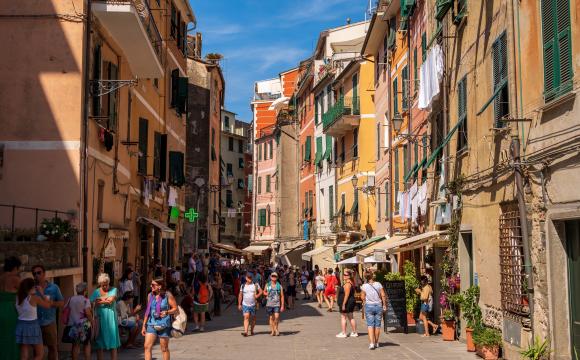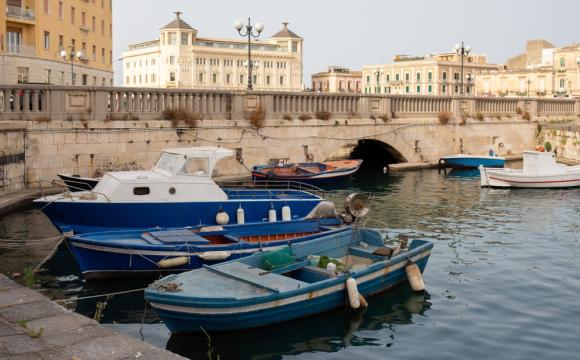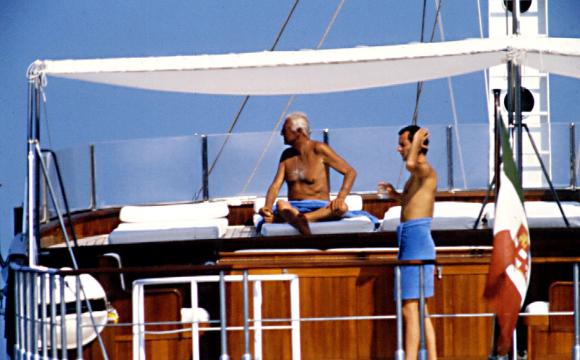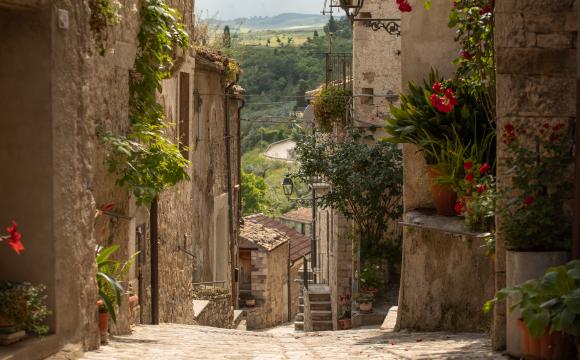 An Italian journalist kidnapped by Taliban militants in Afghanistan 14 days ago was released unharmed on Monday.
An Italian journalist kidnapped by Taliban militants in Afghanistan 14 days ago was released unharmed on Monday.
Daniele Mastrogiacomo, a correspondent for the La Repubblica daily, was taken to a hospital run by Italian aid organisation Emergency in the southern Afghan city of Lashkar Gah.
The reporter's Afghan interpreter, Adjmal Nashkbandi, was also released.
Mastrogiacomo, 52, told his Rome-based newspaper in a video hook-up that he was well but psychologically drained after his ordeal.
"There were times when I really feared I would be killed at any minute... I thought I would die," he said.
"I'm feeling very confused but happy. I was able to get out of this scrape and I want to thank everyone who worked to secure my freedom... I sensed that I hadn't been abandoned and that gave me strength and courage," he said.
Mastrogiacomo said he had been continually moved around by his captors and had passed through 15 different hideouts, where he had often been kept tied up.
The reporter was abducted together with Nashkbandi and an Afghan driver on March 5 while attempting to interview Taliban leaders in southern Afghanistan, where NATO has just unleashed the biggest offensive since the 2001 war that toppled the Islamists.
Mastrogiacomo's driver, 25-year-old father of four Sayed Agha, was executed last Thursday after a Taliban court said he was guilty of spying.
Mastrogiacomo was also initially accused of spying for the English.
La Repubblica rejected the claim as "absurd", saying the Karachi-born reporter had been writing for them since 1980 and working out of Afghanistan since February.
Mastrogiacomo will now be flown back to Italy and could be back in Rome as early as tonight, foreign ministry sources here said.
PRODI AND OTHER OFFICIALS HAIL REPORTER'S RELEASE.
Italian Premier Romano Prodi expressed his delight at the reporter's release but stressed it had "not been a simple operation".
"We will give more details later on," added the centre-left premier, who is under pressure from hard-left and pacifist allies over the continuation of an Italian peacekeeping mission in Afghanistan.
Italy has 1,900 troops serving in Afghanistan but critics say the conflict-torn nation has become too dangerous for peacekeepers.
Mastrogiacomo's abduction fuelled the calls for a troop pullout.
President Giorgio Napolitano was also among the host of officials to express satisfaction at his release.
"This is the result of an extraordinary pooling of efforts, beginning with the government and backed by all political parties and the public," the head of state said.
Foreign Minister Massimo D'Alema made a point of thanking Emergency and its founder Gino Strada for facilitating the negotiations for Mastrogiacomo's release.
Strada, a Milan-born surgeon and pacifist who has become famous through the work of his international medical aid organisation, sought to play down his role.
He told Italian TV that he did not want to "make a speech or any type of analysis" but "was simply overjoyed for Mastrogiacomo and his family".
Strada also helped last year in the release of Italian photo-journalist Gabriele Torsello after three weeks' captivity in Helmand, the same area of Afghanistan where Mastrogiacomo was abducted.
Emergency runs three hospitals and 30 other facilities in Afghanistan.
Strada stressed recently that his organisation played a key humanitarian and social role in the country and that this, together with it neutral status, gave it contacts and channels that were usually denied official representatives in hostage negotiation processes.
According to Afghan news agency Pajhwok, five Taliban members - including the brother of top Taliban military commander Mullah Dadullah - were freed in exchange for Mastrogiacomo's release.
On Sunday night, the Italian foreign ministry announced that conditions set by the reporter's captors for his release had been met but gave no details.












